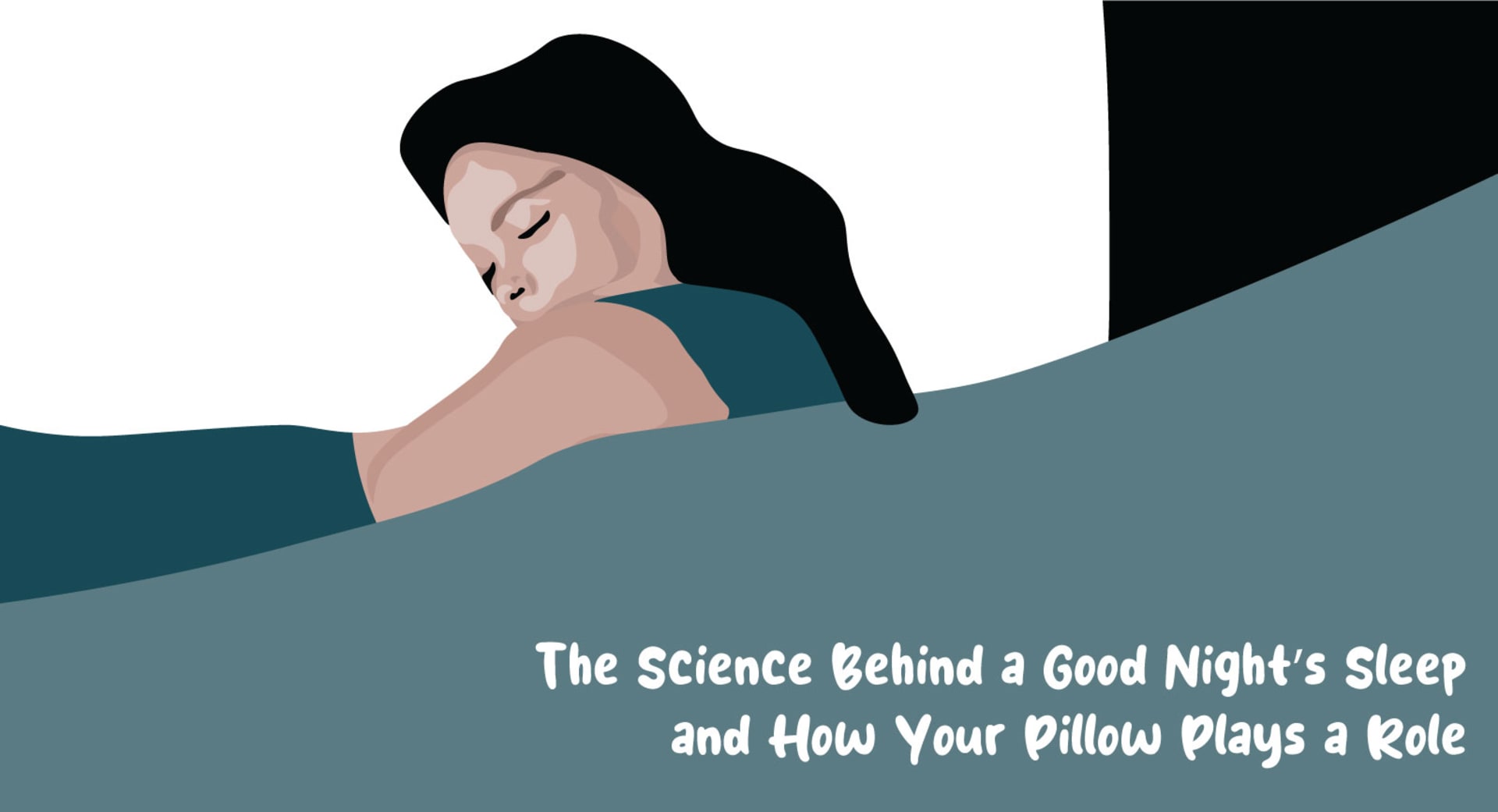Sleep Science: Healthy Sleep and How Your Pillow Plays a Role

Quality sleep is essential for both our physical health and mental wellness. While various factors influence how well we rest, the importance of our pillow is often underestimated. In this post, we'll delve into the science behind sleep and discover how selecting the right pillow can make a remarkable difference in your nightly routine.
The Importance of Sleep

Sleep is a vital physiological process essential for overall health. During sleep, our bodies repair and regenerate, while our brains consolidate and process daily experiences. Sleep deprivation and poor sleep quality have been linked to various health issues, including:
- Increased risk of obesity
- Higher chances of developing diabetes
- Greater risk of cardiovascular disease
- Potential mental health disorders
Even losing just a few hours of sleep can harm your health. Poor sleep also impairs memory, attention, and decision-making. Sleep deprivation costs the US economy over $400 billion yearly in lost productivity and higher healthcare expenses.
The Science Behind Sleep

The Role of the Hypothalamus
The hypothalamus, a small but powerful gland in the brain, plays a crucial role in regulating sleep. It releases two essential hormones: melatonin and cortisol.
- Melatonin: This hormone helps us fall asleep. Its production is low in the morning and gradually increases to make us feel sleepy by bedtime.
- Cortisol: Often called the "stress hormone," cortisol keeps us alert and awake. Its production is typically high in the morning and decreases throughout the day.
Factors Affecting Sleep-Regulating Hormones
Several factors can disrupt the balance between melatonin and cortisol:
- Light exposure
- Noise levels
- Temperature
- Stress
In our modern world, we're often exposed to bright lights from electronic devices, loud noises, and stressful situations before bed. These factors can disrupt our natural sleep cycles and make it challenging to establish healthy sleep habits.
How Your Pillow Affects Quality Sleep:

1. Proper Alignment
The right pillow ensures proper alignment between your neck and spine. Sleeping with your head and neck out of alignment can lead to chronic pain and increased susceptibility to injury.
2. Comfort and Stress Reduction
A comfortable pillow can help reduce stress levels as you lay down at night. When we're at ease, our body's fight-or-flight response is less activated, leading to lower levels of stress hormones like cortisol and adrenaline.
3. Temperature Regulation
The material of your pillow can affect your body temperature. Cooler body temperatures help regulate sleep hormones, so a pillow designed to dissipate body heat can contribute to more restful sleep.
Choosing the Right Pillow

When selecting a pillow, it’s important to consider your sleeping position and body size!
- Stomach sleepers: Look for a flatter, firmer pillow that keeps your head close to the bed, ensuring neck vertebrae align with your spine.

- Back sleepers: A medium-high pillow that supports your head a few inches above the mattress is ideal. Those with larger frames may prefer taller pillows.

- Side sleepers: Opt for the tallest pillows to keep your neck vertebrae aligned with your spine. Side sleepers with larger frames usually benefit from high loft pillows.

Steps to Select the Perfect Pillow
Now that you understand the deeper machinations of sleep science and building substantial sleep hygiene, the only thing left to do is go out into the world and find the best pillow for your needs.
We’ll wrap things up with some practical steps that anyone can follow to choose the right pillow:
- Identify your sleep position: This should be your primary consideration when choosing a pillow.
- Consider health conditions: If you have chronic body pain or sleep deprivation, you may need a specific type of pillow.
- Determine comfort preferences: Think about whether you prefer soft, firm, or medium pillows.
- Test different options: Try out various pillows to find the most comfortable and supportive one for you.

By understanding sleep science and choosing the right pillow, you can significantly improve your sleep quality and overall health.
Sweet dreams!